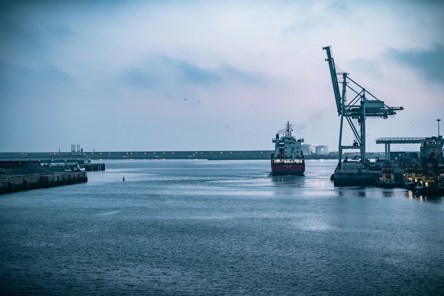Global trade agreements influence the movement of goods and services across international borders. In a world of constant change, these economic pacts are designed to build confidence and promote investment. Various agreements have been ratified over the years, encouraging international cooperation and driving the economic growth of nation-states.
Trade agreements help foster mutually beneficial economic relationships, but they're also highly complex. While businesses benefit from greater market access, the risks and regulations associated with global trade are notoriously difficult to navigate. If you're involved with the global marketplace in any way, working with a reliable freight forwarding partner is the best way to stay aligned and move forward.
What Are Global Trade Agreements?
International trade agreements impact the global business landscape. They affect commerce and risk dynamics, shape market access and logistics, and influence business strategies on the ground. Every business with a global presence or interest needs to understand how these agreements work.
Global trade agreements are legally binding pacts between countries or regions. They're designed to promote trade and boost economic cooperation, and they're also used as a political tool. Many of these agreements are preferential in nature, including free trade agreements (FTAs) and regional trade blocs. FTAs are designed to remove or reduce tariffs, quotas, duties, and other economic barriers. Countries set up FTAs to facilitate trade, promote investment, and benefit domestic consumers.
FTAs come in three distinct categories:
- Unilateral trade agreements are one-sided and non-reciprocal. They're designed to support developing countries.
- Bilateral trade agreements are mutually beneficial. They're designed to improve trade between two countries.
- Multilateral trade agreements are mutually beneficial. They're designed to improve trade between three or more countries.
Free trade agreements help promote global competition and transparency. They have a profound influence on the commercial landscape, affecting everyone from small family businesses to large multinational concerns.
How Do Global Trade Agreements Affect Freight Forwarding?
FTAs and other global agreements influence how freight moves through the supply chain. Freight forwarding businesses work with ocean transportation, air freight carriers, and road haulers, and they're subject to various trade agreements.
As freight forwarding is a complex operation, providers need to manage logistics and abide by regulations in multiple jurisdictions. Global trade regulations are always evolving, and companies need to be on the front foot. For example, the following global events have impacted freight forwarding over recent years:
- The global pandemic exacerbated existing trade barriers, creating delays and bottlenecks across the global supply chain.
- New environmental regulations have been impactful, with businesses needing to pivot and adjust to ensure compliance.
- The ongoing trade war between the United States and China has resulted in a range of tariffs and retaliatory barriers.
- Territorial disputes in the Middle East and Ukraine have affected trade flows and heightened security concerns.
International trade has changed significantly over the years. New agreements, regulations, and protection policies continue to shape the shipping industry. Freight forwarding companies need to navigate this complex regulatory landscape, keeping up with changes and entering into partnerships to improve trade flows and reduce risk. To do this successfully, it's important to understand trade agreements and their logistics.
What Are the Key Components of Major Trade Agreements?
The United States is subject to multiple trade agreements, both within North America and across the world. In total, there are 14 comprehensive free trade agreements with 20 countries. From the European Union to Australasia and beyond, trade agreements and logistics have a major influence on regional relationships.
The following three agreements have been among the most influential:
- The North American Free Trade Agreement (NAFTA) involved the United States, Canada, and Mexico. It came into force in 1994, eliminating most tariffs between these countries. While NAFTA focused on agriculture, textiles, and automobile manufacturing, it also dealt with intellectual property, dispute resolution, labor policies, and environmental protection.
- The United States-Mexico-Canada Agreement (USMCA) came into force in 2020, taking over from NAFTA. This mutually beneficial trade agreement was designed to balance NAFTA by giving greater support to the North American economy. It's designed to benefit American farmers, protect intellectual property, and support good regulatory practices, among other benefits.
- The Trans-Pacific Partnership (TPP) is worthy of mention, even though it was never ratified. This proposed trade agreement involved Australia, Brunei, Canada, Chile, Japan, Malaysia, Mexico, New Zealand, Peru, Singapore, Vietnam, and the United States. President Trump withdrew from TPP in 2017, negotiating a new trade agreement called the Comprehensive and Progressive Agreement for Trans-Pacific Partnership in 2018.
How Can Businesses Navigate Changing Trade Regulations?
The world of global trade is not only complex but highly demanding. With international relationships and responsibilities always changing, businesses often struggle to maintain compliance. There are so many issues to consider, from sourcing strategies and logistics concerns to the adoption of new technologies and security standards.
To meet regulations and satisfy standards throughout your supply chain, it's vital to work with a trusted freight forwarding company. From shipping and storage operations to global customs authorities, the freight forwarding industry interacts with diverse parties to ensure regulatory compliance.
Working with a freight forwarding company allows you to:
- Enhance supply chain resilience
- Ensure responsible labor practices
- Maintain compliance with foreign markets
- Meet transparent reporting standards
- Boost accuracy and efficiency
- Promote security across the supply chain
What Are the Benefits of Global Trade Agreements for Freight Forwarders?
More than meeting the challenges of global trade, freight forwarders allow companies to leverage trade agreements. American businesses can hugely benefit from reduced tariffs, simplified customs procedures, and expanded market access.
With support from a recognized freight forwarding operation, businesses can expect:
- Expedited shipping
- Transparent reporting
- Total compliance
- Personal service
- Peace of mind
How Do Trade Wars and Policy Changes Impact Freight Forwarding?
International trade wars and political uncertainty have a major influence on global trade. Whether it's tariffs with China, sanctions with Russia, or supply chain disruptions in the Middle East, global conditions affect trade policy. This leads to severe disruptions in some markets and creates valuable opportunities in others. Working with a freight forwarding company is the best way to mitigate the risks and recognize the benefits associated with trade wars.
For example, trade wars generally lead to a fluctuation in shipping routes and transportation costs. Expenses change often, and businesses need to pivot to avoid paying through the roof. Effective global trade relies on the consistent flow of goods and services, and trade wars work against this by creating delays and bottlenecks. Goods take longer to reach their destination, and surplus conditions are more likely to arise.
Economic opportunities also arise during trade wars, often due to these exact same conditions. Some markets have insufficient access to particular goods, which can lead to greater profit margins.
Trade wars and global uncertainty also affect supply chains, with companies needing to reevaluate and restructure trade routes to avoid tariffs and delays. This can also be advantageous, as businesses are able to diversify import sources and create more resilient supply chains for the future.
How Do Freight Forwarders Help to Ensure Trade Compliance?
Along with market access and movement, freight forwarders play a critical role in managing compliance. Trusted companies help businesses comply with international trade regulations and avoid financial penalties.
Freight forwarding companies are dedicated to all aspects of transportation, logistics, and warehousing. They understand the compliance demands associated with these sectors and adopt innovative technology solutions to manage various regulatory standards.
How Does Technology Help in Managing the Impact of Trade Agreements?
Technology plays a central role in the freight forwarding industry. As global trade routes have grown, new solutions have been adopted to ensure the efficient movement of goods between locations. Various platforms and applications have been created to help businesses manage the complexities of global trade agreements. From trade management software to real-time tracking and compliance reports, the use of technology benefits freight forwarders' customers.
Freight forwarders provide:
- Seamless eCommerce solutions
- Real-time tracking and data access
- Integrated supply chain management
- Comprehensive analytics and reporting
- Reliable global customer support
How SEKO Logistics Can Assist with Navigating Global Trade Agreements
Do you want to expand your business into new global markets? Whether you're a small business looking to export goods or a large multinational searching for seamless integration, you deserve a trusted freight forwarding partner by your side. At SEKO Logistics, we provide assistance with all aspects of global trade. We're familiar with global trade agreements, and we know how to leverage them to your advantage.
We can help your business to:
- Identify global markets and assess market potential
- Leverage trade agreements for competitive advantage
- Ensure regulatory compliance across jurisdictions
- Facilitate access to valuable target markets
- Build strategic partnerships on a global scale
- Monitor regulatory developments and pivot resources
- Anticipate risks and opportunities across markets
At SEKO Logistics, we help businesses navigate global trade agreements and optimize freight forwarding strategies. We have proven expertise in global trade, and we deliver trusted services to push your business forward. As a recognized leader in the freight forwarding industry, we can help your company unlock new opportunities that align with global trade policy and logistics.
Contact the SEKO Logistics team for more information.



